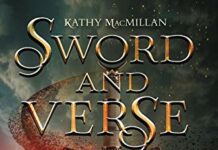
Ebook Info
- Published: 2016
- Number of pages: 200 pages
- Format: Epub
- File Size: 1.00 MB
- Authors: China Miéville
Description
For readers of George Saunders, Kelly Link, David Mitchell, and Karen Russell, This Census-Taker is a stunning, uncanny, and profoundly moving novella from multiple-award-winning and bestselling author China Miéville.NAMED ONE OF THE BEST BOOKS OF THE YEAR BY NPR In a remote house on a hilltop, a lonely boy witnesses a profoundly traumatic event. He tries—and fails—to flee. Left alone with his increasingly deranged parent, he dreams of safety, of joining the other children in the town below, of escape. When at last a stranger knocks at his door, the boy senses that his days of isolation might be over. But by what authority does this man keep the meticulous records he carries? What is the purpose behind his questions? Is he friend? Enemy? Or something else altogether? Filled with beauty, terror, and strangeness, This Census-Taker is a poignant and riveting exploration of memory and identity.Praise for This Census-Taker“China Miéville is a magician . . . who can both blow your mind with ideas as big as the universe and break your heart with language so precise and polished, it’s like he’s writing with diamonds.”—NPR “The book haunts the reader; what actually happened seems always just out of reach, glimpsed in shadow as it rounds a corner ahead of our vision.”—Los Angeles Review of Books “[Mieville’s] been compared to Karen Russell and George Saunders, and rightfully so.”—The Huffington Post “Marvellous.”—The Guardian “Lingers in the mind like an unsettling dream.”—Financial Times “A thought-provoking fairy tale for adults . . . [This Census-Taker] resembles the narrative style, quirkiness, and plotting found in the works of Karen Russell, Aimee Bender, or Steven Millhauser.”—Booklist “Brief and dreamlike . . . a deceptively simple story whose plot could be taken as a symbolic representation of an aspect of humanity as big as an entire society and as small as a single soul.”—Kirkus Reviews
User’s Reviews
Editorial Reviews: Review “China Miéville is a magician . . . who can both blow your mind with ideas as big as the universe and break your heart with language so precise and polished, it’s like he’s writing with diamonds.”—NPR “The book haunts the reader; what actually happened seems always just out of reach, glimpsed in shadow as it rounds a corner ahead of our vision.”—Los Angeles Review of Books “[Mieville’s] been compared to Karen Russell and George Saunders, and rightfully so.”—The Huffington Post “Marvellous.”—The Guardian “Lingers in the mind like an unsettling dream.”—Financial Times “A thought-provoking fairy tale for adults . . . [This Census-Taker] resembles the narrative style, quirkiness, and plotting found in the works of Karen Russell, Aimee Bender, or Steven Millhauser.”—Booklist “Brief and dreamlike . . . a deceptively simple story whose plot could be taken as a symbolic representation of an aspect of humanity as big as an entire society and as small as a single soul.”—Kirkus Reviews From the Inside Flap A boy ran down a hill path screaming.This running, screaming boy has witnessed something terrible, something so awful that he cannot even properly articulate it. All he can do is run. His story is investigated, but no evidence is found to support it, and so in the end, he is sent back. Back up that hill path to the site of his terror, to live with the parent who caused it.The boy tries to escape. He flees to a gang of local children but they can’t help him. The town refuses to see his danger. He is alone.Then a stranger arrives. A stranger who claims his job is to ask questions, seek truth. Who can, perhaps, offer safety. Or whose offer may be something altogether different, something safety is no part of.In This Census-Taker, multiple award-winning writer China Miéville offers a story made of secrets and subtle reveals, of tragedy and bravery, of mysteries that shift when they appear to be known. It is a stunning work, full of strangeness and power. –This text refers to an alternate kindle_edition edition. About the Author China Miéville is the author of numerous books, including Three Moments of an Explosion, The City & The City, Embassytown, Railsea, and Perdido Street Station. His works have won the World Fantasy Award, the Hugo Award, and the Arthur C. Clarke Award (three times). He lives and works in London. –This text refers to an alternate kindle_edition edition. Excerpt. © Reprinted by permission. All rights reserved. A boy ran down a hill path screaming. The boy was I. He held his hands up and out in front of him as if he’d dipped them in paint and was coming to make a picture, to press them down to paper, but all there was on him was dirt. There was no blood on his palms.He was nine years old, I think, and this was the fastest he’d ever run, and he stumbled and careered and it seemed many times as if he would fall into the rocks and gorse that surrounded the footpath, but I kept my feet and descended into the shadow of my hill. The air felt wet but no rain had fallen. I sent up cold dust behind me and little animals scuttling ahead.People in the town saw that cloud long before I arrived, Samma would later tell me. When she was sure that it wasn’t just weather, she was one of those who came to wait by the pump beyond the bridge to the west, where there were the last buildings, to watch whatever was coming. After that day, when I saw her, when she could, Samma would tell me stories, including the story of when I came down the hill.“I knew it was you,” she’d say. “That dirt devil on its way down. ‘It’s the boy,’ I said. A lot of us did. You must’ve run a mile while I watched you, you ran and ran and you didn’t slow once. You came right past the nails.” The nails: my name that she had adopted for a copse of dead white bushes. “Right by every split in the hill and you must have heard all the devils down there howling at you.” When she talked like this I’d stare at her urgently, without speaking. “We heard you coming, making noises like a hurt gull or something, and I said: ‘It is, it’s the boy!’ ”In I’d come. I turned with the path, away from where the slope grew drier and stonier and inclined precipitously, and I ran for where the crowd was waiting. I could see down spaces between those outmost walls to the town’s built-up bridge. I was weeping so hard I retched, came loud and filthy past the wire-spinning mill and the glassworks, past barns and stores and the ground before them strewn with old straw and the shards of things that had been broken within, toward the cobbles and concrete in view of that bridge itself, where the townspeople waited.There were children among them: those with adults were held back by them. I made noises as if I were a whooping baby. I struggled for air.I was the only one moving while all there stared at my little figure raising dirt, until someone, I don’t know who, started forward to meet me, and they brought others after them in shame, Samma among them.They ran to me with their own arms out like mine, to take me.“Look!” I heard a man say. “God, look at him!”I kept up the hands I thought were bloody for them to see.I shouted, “My mother killed my father!”I was an uphiller. Above my house was a steepening distance of grass and loose earth, then slabs of flint in a rough ziggurat, and then at last, out of sight, the peak. No path went there. We lived as high on the hill as anyone. Our house was at the same level of the slope as those of a few weather-watchers and hermits and witches you could call our neighbors, though you’d have to walk a while from where we lived to see any of their places, and we never visited them nor they us.My house had three stories that grew less and less finished as they rose, as if the builders had lost spirit the further they were from the soil. On the ground were a kitchen with a parlor, my father’s workroom, a passage and a cornering wooden stair. In the middle, two small, less finely finished bedrooms, my father’s and my mother’s, and a cubby where I slept between them.On the highest floor any drive to subdivide had been defeated and there was only one space, into which you could feel air come through the imperfect outer walls and the cracks where window-frames met plaster.I liked to climb the steep stairs to play alone in that wind-filled room. All the rest of the house was whitewashed or painted in an ocher made from local earth, but two walls of the attic were papered in a repeating design. The tangled flowers and pagodas astonished me. I couldn’t imagine my mother or my father choosing them. I decided the paper must have predated my parents’ arrival, which made me contemplate the house before they came to it, the house empty of them. That made me queasy and excited.In the kitchen and where my father worked there were lights and tools that ran off current from the generator we would sometimes fire up. In the bedrooms we used candles. The windows of the top floor had no curtains and every day the light would cross the room, from one end to the other. The wallpaper was faded by years of the sun’s attention. In one corner, low down where I thought it would be secret, I drew animals around the buildings and among the stems.My house stood by the path’s end, wedged into the rocks of the hill as if shying back from where the ground fell away before it. Between the house and that drop was a rusted wire fence in front of which I’d stand to watch hill animals—feral and crossbred cats and dogs, dassies, the lean descendants of goat and sheep escapees—trip and scatter between stone shapes and the bushes. There were those beasts with territories I came to know, on which I came to know that I was encroaching, and those which visited repeatedly, seemed curious about me—a furious drab songbird claiming certain trees, a red-furred dog not much bigger than a puppy but which moved with an older dog’s caution.From here I could make out the black roofs of the town. I’d kick stones small enough to go through the metal links and watch them bounce into the boscage, or further—all the way, I imagined, to the water, to the gulley below the buildings.It was one town scattered up and down the sides of the two hills and between them on the bridge. And like everyone on both those hills, we were of it, though we lived in a house as far from the streets as it could be for that still to be true. It was the law of this town to which we were subject. When I came down that day, I wasn’t running for the law, but the law found me.The people comforted me in a rough way.“What did you see, boy?” they asked. “What happened?”All I could do was cry.“Your mum did something?” a woman said to me, kneeling and taking my shoulders in her hands. “She did something to your dad? Tell us.”She confused me. She was trying to make me meet her eye. What she said confused me because I didn’t think she was describing what I’d seen, what I’d walked in on, but as she spoke I realized she was repeating what I’d told her. The boy, I, had said his mother killed his father.Still now if I consider the thing I saw in my house that day what comes back to me first is my mother’s hands: her calm expression, the sight of her braced and striking, her hands coming down hard, a knife, my father’s eyes closed, a glimpse of his mouth, his mouth full of blood, blood on the pale flowers of the walls, and the boy has to think all that, first, I have no choice, I can’t think around it, and every time it takes me a moment to reflect and prepare to say that no, that’s not what it was, surely, that the face of the person being hit was hidden, or certainly that it wasn’t my father’s.I tried to correct what I’d said that the woman was repeating, and could only swallow.I’d heard a rhythm. I’d gone up to the top of the house, the space with all the air, and found people already there. By the bridge the woman looked at me and I concentrated, and I didn’t think what I’d seen was my mother killing my father, as I’d said. I went back to it. Her face, my mother’s face, blank and tired, yes, but if seen only for an instant, glimpsed. And not her hands coming down but my father’s.“No,” I said. “My father. Someone. My mother.”It had been my father with his back to me. I thought that as carefully as I could through all my shaking and gasping. Him holding someone. Her face I couldn’t recall.My father’s back had been to me. It hadn’t been my mother’s back. That blood had been there, the blood I still imagined on my hands. I remember it as very bright and dark at the same time, because it was newly come into the light while the paper it colored was so faded.I’d screamed until my father turned to regard me. That was what I’d seen: him gasping from his efforts.He stared at me and I ran away.Some mornings my mother would give me lessons in letters and numbers. She didn’t have many books but she’d place before me one of those she did and sit across the table from me and point without speaking at certain words, waiting as I struggled to say them. She would correct me when she had to and sometimes impatiently prompt me, sound out words at which I’d failed. This was in another language than the one in which I write now.My mother was a muscular woman with dark gray skin folded on her forehead and around her eyes. Except when she was digging she left her long white-flecked hair loose so it draped around her face. I thought her beautiful but after she died if I ever heard anyone discuss her in more than brief passing the adjective they used was strong—or, once, handsome.Mostly what my mother did was tend the sprawl of up-and-down land around our house. She’d separated this sloping garden into seemingly formless plots with boundaries she marked with stones. When she saw how they confused me, she told me she was following contour lines.She would clear blown sticks and leaf-matter from between them, and dry it to feed our fire or the generator in its little housing for when we wanted electricity. She had an outside dress in which she kept seeds of different kinds. I’d sit quietly on one of several suitable stones and watch her reach into her many pockets to sow handfuls in the grit she tilled. Sometimes she smiled in a cold way at the anxiety her random methods raised in me.Once she stood straight and leaned on her hoe and looked right at me and said, “Last night I had a dream of planting bits of rubbish right here and watering them and making them grow. Growing a dump. When I say, ‘I had a dream’ I mean I wanted to, not ‘It came into my head while I was sleeping.’ ”My mother would twist unpleasant figures out of wire and wood and put them up to frighten the birds. My father made them too, and his were finer than hers, but none of them intimidated the crows very much, and my mother and I would often have to run out of the house windmilling our arms and shouting so the big birds would lurch away from the seeds a while, less out of fear than a kind of languorous contempt.Out of that thin dusty ground my mother pulled hybrids and rarities as well as beans and gourds and so on. Some of what she grew we ate; some she sold or bartered with the shopkeepers on the bridge or in the bridgetown, for all kinds of things. Some she exchanged for more seeds that she would fold back into the earth.Mostly we kept to our own patch of hill, as did everyone who lived above the town: the path below us and all the ruts cutting crosswise from height to height ran carefully so as not to get too close to any dwellings. Yes, at rare times, almost, it felt in later years, out of some obligation to be naughty, a duty to something, I might walk a long while through complex country, creeping close enough to another uphiller’s place below our own to see them from the shelter of bushes, to watch crooked women, sisters raising pigs in a barn, to see the gnarled man on his plateau out of sight of the second hill performing precise tasks in his yard, calibrating gauges on old machines the moving parts of which he would daub with grease. These other houses looked so much like my own that they roused in me imprecise suspicions, as if, I would later have the words to think, they were a set.There was supposed to be a holy old woman or man living in a cave no more than an hour’s walk from our door, just below the zenith, and I remember once glimpsing the beat of a brown cape like a shaken sheet but whether that cloth was worn on bony vatic shoulders I can’t say. I can’t even say if I truly saw it.I’ve observed real ascetics since, their mortifications and their dens, and I know now how pinchbeck was the self-exile I saw, if I saw anything, if there was anything to see.The most common trace of those who lived closest to us was the smoke from their fires, from when they made food, or destroyed their rubbish, which was not how we disposed of ours.My father was a very tall pale man who seemed endlessly startled, who moved in jerks as if trying not to be caught out. He made keys. His customers would come up from the town and ask for the things for which people usually ask—love, money, to open things, to know the future, to fix animals, to fix things, to be stronger, to hurt someone or save someone, to fly—and he’d make them a key.I was put out of the house during these transactions but would often creep around the perimeter to crouch by the window of his workroom to hear the discussions, and even to peek in. More than once my mother, prodding at her plots, her hair up in the yellow scarf that was the brightest thing I ever saw her wear, observed me huddled by the sill. She never stopped me eavesdropping. –This text refers to an alternate kindle_edition edition. Read more
Reviews from Amazon users which were colected at the time this book was published on the website:
⭐For me this book signified the return to China Mieville whom I hadn’t read after Embassy town.A novella that serves as a demonstration why literature is in many situations far superior to screen: your mind is a superior reality-rendering engine than any visual technology. It takes a skillful code-writer to squeeze everything our mind is capable of conjuring.China Mieville is one such code-writer.He knows the secret half-spaces between syllables to leave trace amounts of subliminal code that snaps the new scene into your viewpoint.Subtleties and innuendoes galore, the novella offers you a dreamy boat ride through the time warped landscape of strange people. Whose abnormality is never pinpointed but only hinted upon.Enjoy the ride and dream on.
⭐This seems to be an experiment in writing around all the interesting parts so as to allow only guesses at them. I feel like the whole book is negative space. Practically all the events that would be captivating for the mind and imagination are uncertain, or not remembered clearly, or can be only guessed, or hinted at by random acronyms or indirect communications, or otherwise exist at the periphery of the story, or almost outside of it. It is certainly interesting as a technique in theory, but I find it does not really fully work in reality, or at least it did not fully work in this particular case. I gave it 3 stars, because that is how I felt when I was reading it; I found it more interesting to think about it though, as a theoretical exercise.
⭐I’ve read just about every Mieville book, and until reading this, considered myself a huge fan. ‘King Rat’, ‘Perdido Street Station’ and ‘The Scar’ are three of my favorite books ever, and my immediate reaction to ‘This Census-Taker’ was to send an email to my friends telling them not to buy it. Mieville has taken it upon himself to write stories in a growing list of genres. While the pursuit is noble, the results are becoming more and more disappointing.Is this a bad story? No. Is it a good story? No. It’s a fairly short story sold under its own cover and doesn’t hold up to either being its own title or having a price like a novel. It tells the story of a boy, his difficult family life and how he ends up in what seems to be an interesting profession. But, the most interesting elements of the story (why the census is being taken as it is, his father’s history and profession and the discovered details of his father’s deeds) are all left unexplained. Mieville frequently leaves some interesting pieces of stories unexplained, but in this case, those were the only interesting things. I’m fine if he leaves a few things unexplained and details out others because the payoff on those is well worth the price of admission. But here, every aspect is left to speculation. That was probably intentional and meant to portray the world as the young boy would see it, but it leaves the reader wanting something to cling to.
⭐At first, I had a really hard time getting into this book. I started it several times, then put it down and read something else. Finally, I told myself, I have to read this book. The language is good, though the jumping form one point of view to another was disorienting at first. Also, I couldn’t get a hold on anything concrete in the narrative at first. But I’d told myself I’d read all ten of the books, and so I kept going back to it. Like I said the writing itself is very good, and that helped. Finally, almost halfway through the book, the narrative and the characters started to grab me. Slowly it became a full embrace, and I was immersed in the story. Under any other occasion, I would have set this book down and never picked it back up. I’m glad I did, and it was worth it. It paid off. I’ll have to read more from this author.You can read my reviews of all ten Locus Award novella finalists on my blog, which you can find on my author page:
⭐Like Most of Mieville’s book the idea and plot is interesting but the changing tone and variation of writing may confuse those who are unfamiliar to it. Feels like he was trying to tap in Cormac in The Road with a poetic style of writing format but draws out too much and sometimes makes the story go slow and boring. Deff one of my favorite writers but would put it in my category of my least favorites
⭐Not sure what to think about this. Never read Mieville before, but the premise of the story intrigued me, so I picked it up. I love weird, mysterious stories, like Jeff VanderMeer’s Southern Reach Trilogy. This… was not that. It was mostly confusing, wordy, jumbled… I think some of that is just due to the main character being a child, but it never got better, even in the parts where the narrator is older. And there’s the glaring problem of the narrator being unreliable, meaning this story presents a lot of questions and no answers. Maybe if I read it again, or scoured it from cover to cover for details? Took notes, made a ledger? But frankly, it wasn’t interesting enough to warrant that. I just kept hoping it would get better, but it was over before I ran out of patience.As a side note, are they gouging for e-books or what?! This book was a VERY short $12 read.
⭐I’m trying to figure out if this is a set up for something, or just a stand alone curio?It’s certainly well written with Meiville’s usual flair and quirks, but there are so many loose end, characters that appear from nowhere and then just disappear. To the books credit they’re all interesting enough that I was left with a hunger for more – who are they, what lies behind their actions, are they still alive?!Same goes for the world – it’s familiar but subtlety different. Is this just some war weary backwater (part of the former Yugoslavia maybe?) or is this a fundamentally different world.So strange and incomplete, it almost runs out of steam towards the end. Intentionally?
⭐Having seen the excellent TV adaption of The City and The City I thought I’d explore some of the work of the author behind the book it was based on.I found the writing style almost impenetrable, and really hard going. The story teases you with a sense that it is going somewhere but I have no idea where as I eventually gave up. The jacket blurb sounds really intriguing but the story took way too long to get going.The style felt deliberately obtuse and after a while I decided that the author didn’t really respect his audience as he was deliberately holding information back, for example where does this story take place – somewhere in Europe, or in Africa, or on another planet? It is important for the reader in order to visualise the world that is being written about.
⭐Mieville being weird again. It’s what he’s good at. He creates worlds that are similar to ours and then adds the uncanny without you really noticing. I thoroughly enjoyed this.
⭐You either like China M. or simply do not understand his somewhat bizzare outlook on the multiverse. It is odd, but worth the reading …….
⭐another great book by the ever reliable China Mieville, if a tad short
Keywords
Free Download This Census-Taker: A Novel in Epub format
This Census-Taker: A Novel Epub Free Download
Download This Census-Taker: A Novel 2016 Epub Free
This Census-Taker: A Novel 2016 Epub Free Download
Download This Census-Taker: A Novel Epub
Free Download Ebook This Census-Taker: A Novel





